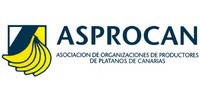The Protected Geographical Indication "Plátano de Canarias", which encompasses 100% of the banana production in the archipelago, will now have a differentiated nomenclature within the European Union's customs code.
This has been reflected in the modification published last Tuesday in the Official Journal of the EU, where the CN "0803 90 11 – Plátano de Canarias" has been introduced, thus recognizing the notable differences between the banana produced in the archipelago and bananas produced elsewhere.
Until now, the Plátano de Canarias shared a combined nomenclature (CN) with all fresh bananas that entered the European continental market, regardless of their origin. A circumstance that directly clashed with the fact that Plátano de Canarias was already recognized in 2013 as a differentiated product by the European Union, which granted it the category of protected geographical indication (PGI) based on its chemical, physical and organoleptic characteristics; making it the only fruit of its category to have such recognition.
Given the differences between the Plátano de Canarias PGI and bananas of other origins, and the difficulties that the Canarian fruit has in being recognized as a different product in the wholesale markets of the rest of the European Union, the Association of Organizations of Banana Producers of the Canary Islands (ASPROCAN) requested the European Commission to grant their product its own customs code; a requested that has been accepted.
It's worth noting that, since the Canary Islands is considered an EU outermost region, all goods originating in the archipelago and destined for the EU's continental market are considered imports from third countries for customs purposes.
Since the Plátano de Canarias shared a nomenclature with bananas from the Americas, Africa, the Caribbean, and Pacific countries, it wasn't possible to have correct traceability of the Canarian product once it entered Community territory or recognize shipments of Plátanos de Canarias to other EU countries or to third countries (such as Morocco, Switzerland, or the United Kingdom) so as to control export volumes and final destination markets.
By sharing NC with the rest of the bananas, import operators and distribution chains incorporated the product from the Canary Islands in the same ripening and distribution processes as the other bananas, thus limiting the export potential of the Plátanos de Canarias PGI and the ability to differentiate before the European consumer.
The banana sector of the Canary Islands expects that the new exclusive combined nomenclature for their product, which will start being applied from January 1, 2024, can boost exports and better differentiate the product beyond the Spanish market.
For more information:
ASPROCAN
T: +34 922 535 142
[email protected]
platanodecanarias.es
